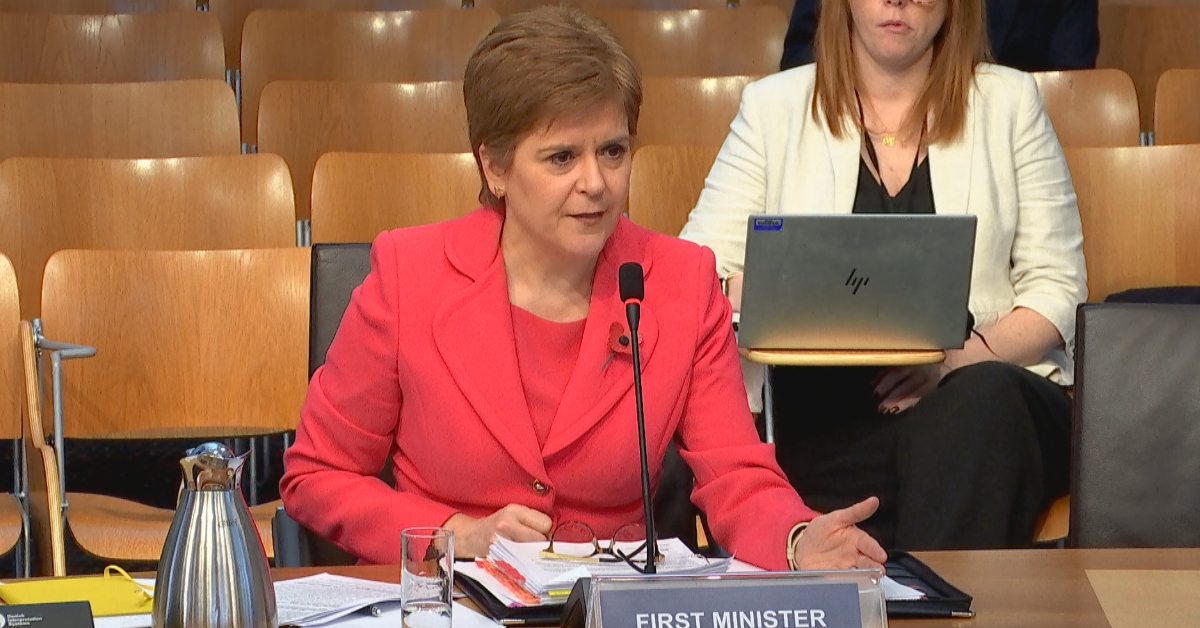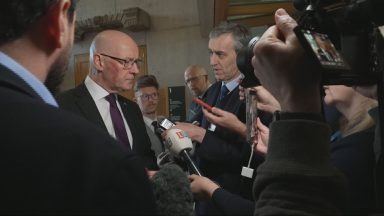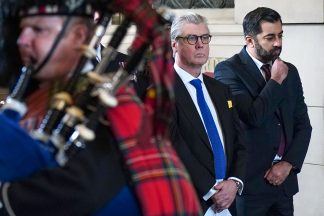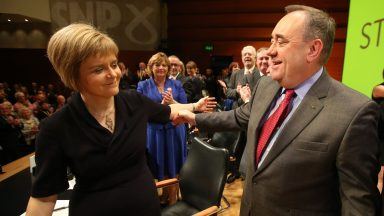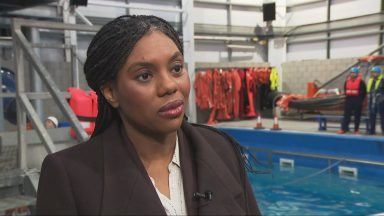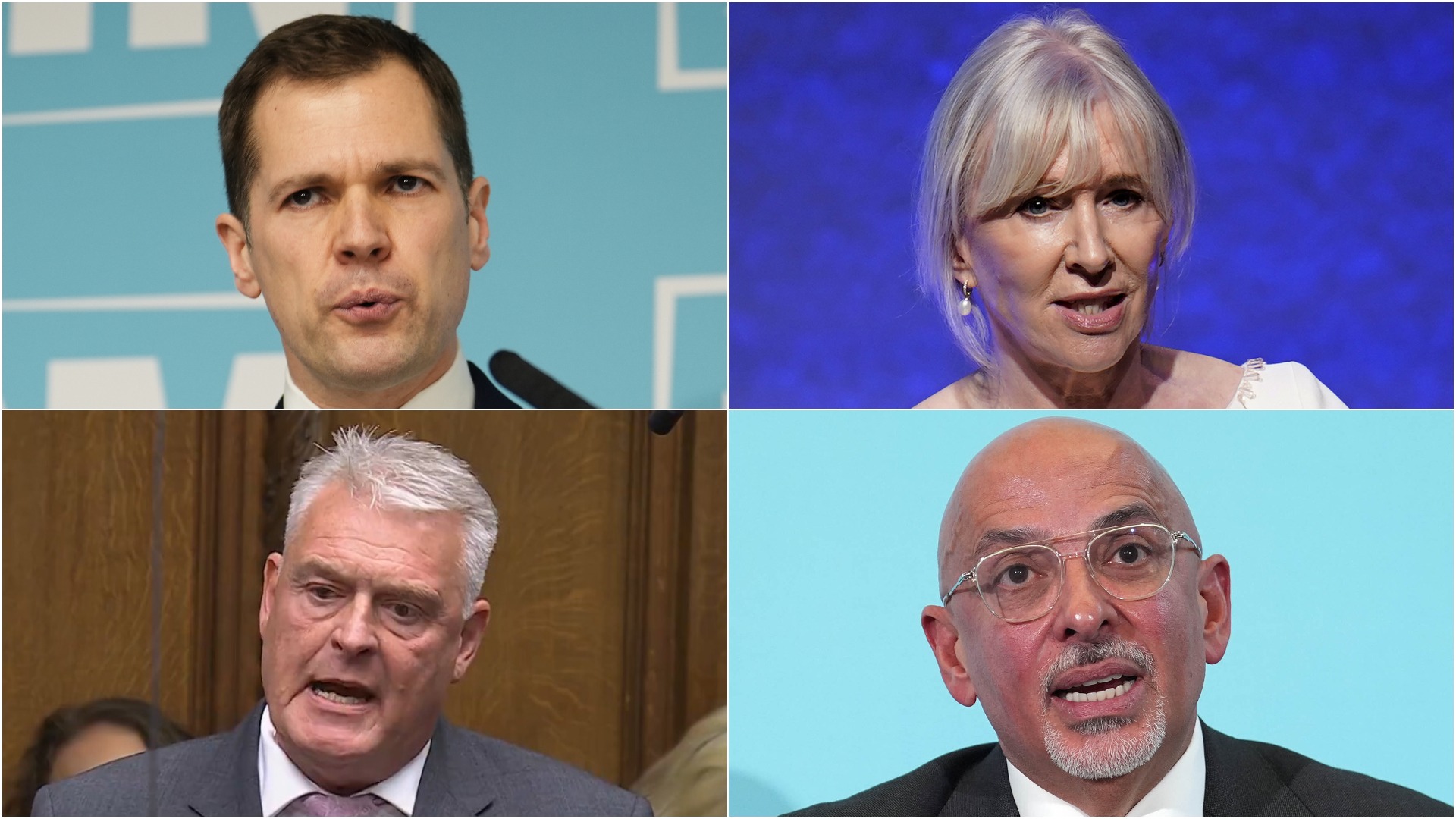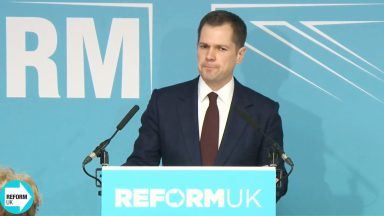Nicola Sturgeon has rejected a suggestion that the awarding of the ultimately disastrous ferry contract to Ferguson Marine in 2015 was a case of “jobs for the boys”.
The First Minister was questioned by MSPs on the contract award at Holyrood’s Public Audit Committee on Friday.
Two vessels being built at the shipyard in Port Glasgow are significantly delayed and over-budget.
Glen Sannox and Hull 802 had been due to be delivered in 2018 at a fixed price of each for £48.5m.
However, projected costs for their completion have soared to £209.6m.
Ferguson Marine was announced as the preferred bidder for the contract to build the ferries on August 31, 2015.
The firm had been taken over by billionaire businessman and Scottish independence supporter Jim McColl in the previous year.
At the time, the SNP described the contract for Fergusons as “just reward” for the investment that had been made into the yard up to that point.
But, a leaked dossier in September this year suggested that the process to award the contract may have been rigged.
According to documents obtained by BBC Disclosure, FMEL benefited from preferential treatment in the process.
It also suggested that Caledonian Maritime Assets Ltd (CMAL) could have broken its own rules by allowing Fergusons to go ahead with its bid, despite being unable to provide evidence of a builders refund guarantee – a mandatory financial safeguard.
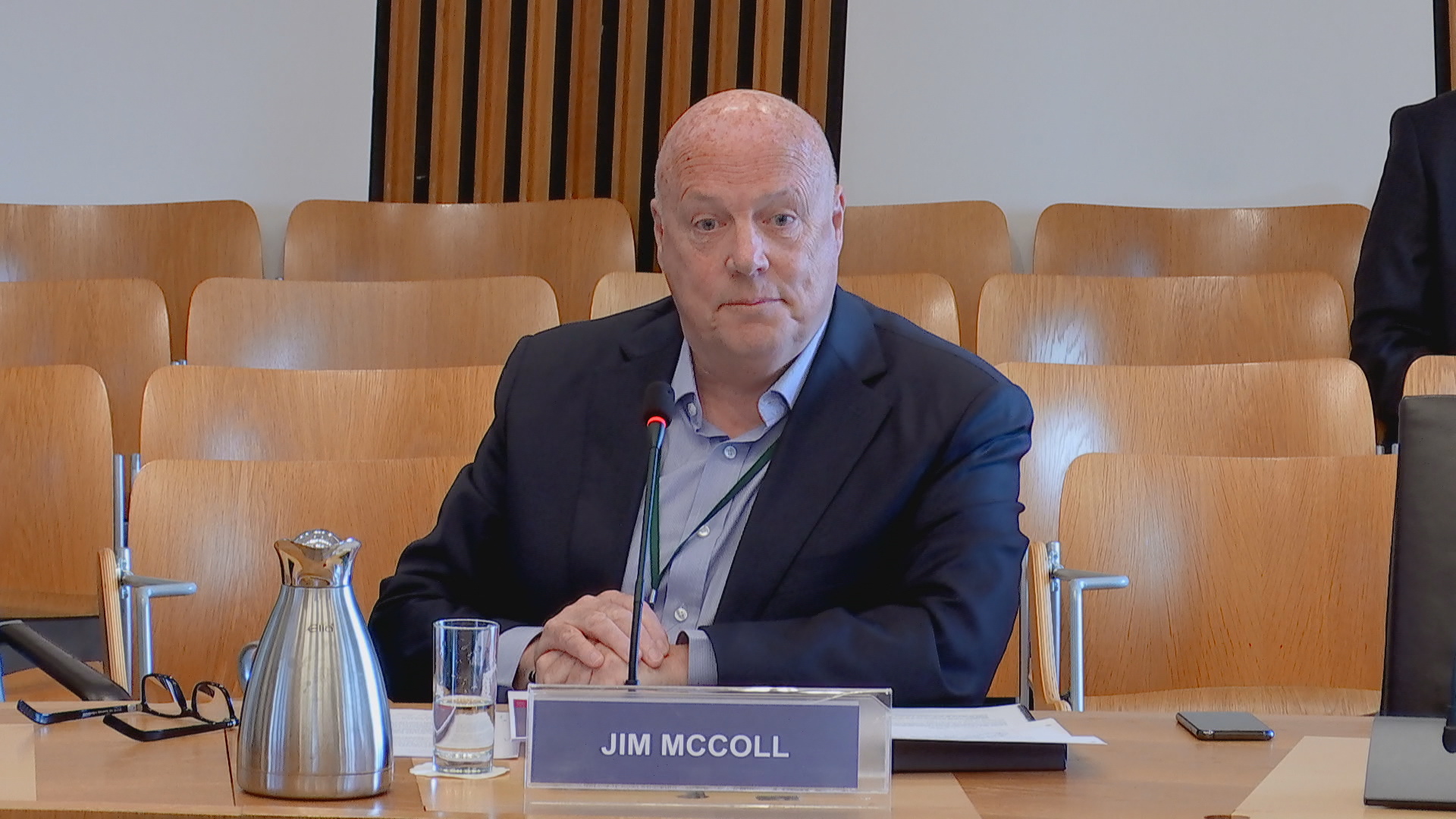 Scottish Parliament TV
Scottish Parliament TVSpeaking on LBC ahead of the First Minister’s appearance at the committee on Friday, McColl suggested that the Scottish Government tried to push through the award for “political purposes”.
At the Scottish Parliament, Scottish Conservative MSP Sharon Dowey, a member of the committee, asked about the relationship between the Government and McColl and whether that had an impact on the decision-making process.
Dowey asked the First Minister: “Was there an interest from the Scottish Government to award the contract to FMEL? Was it a kind of ‘jobs for the boys’?
“There’s obviously been talk of the relationship between the Scottish Government and Jim McColl.
“So was there an interest from the Scottish Government to award the contract?”
Sturgeon acknowledged that politicians at the Scottish Parliament would generally be happy to see contracts going to Scottish companies and supporting Scottish jobs.
However, she “categorically” rejected the suggestion that there was anything “untoward” in the procurement process.
“You’ve used a rather pejorative term that, just for the avoidance of doubt and for the record, I completely and utterly refute,” she told Dowey.
“Is there an interest on the part of any government, and I would imagine what I’m about to say, and I’m talking in general terms here, I’ll come onto the specific in a second.
“I would imagine what I’m about to say is shared by every politician around this table.
“Is it the case that ministers, politicians generally, often we’re sort of challenged on these points by opposition politicians, that assuming it’s all done by the book, you’re quite happy to see contracts go to Scottish companies and therefore support Scottish jobs.
“I’m pretty sure every politician around this table would say yeah of course, that is ideally what we want to see, providing it is all done appropriately.
“So, if this is what you mean by interest, well, from your later comments it’s obviously not what you mean by interest, if you are saying was there anything untoward in this procurement process in order to somehow inappropriately steer this contract towards FMEL – absolutely, categorically not.”
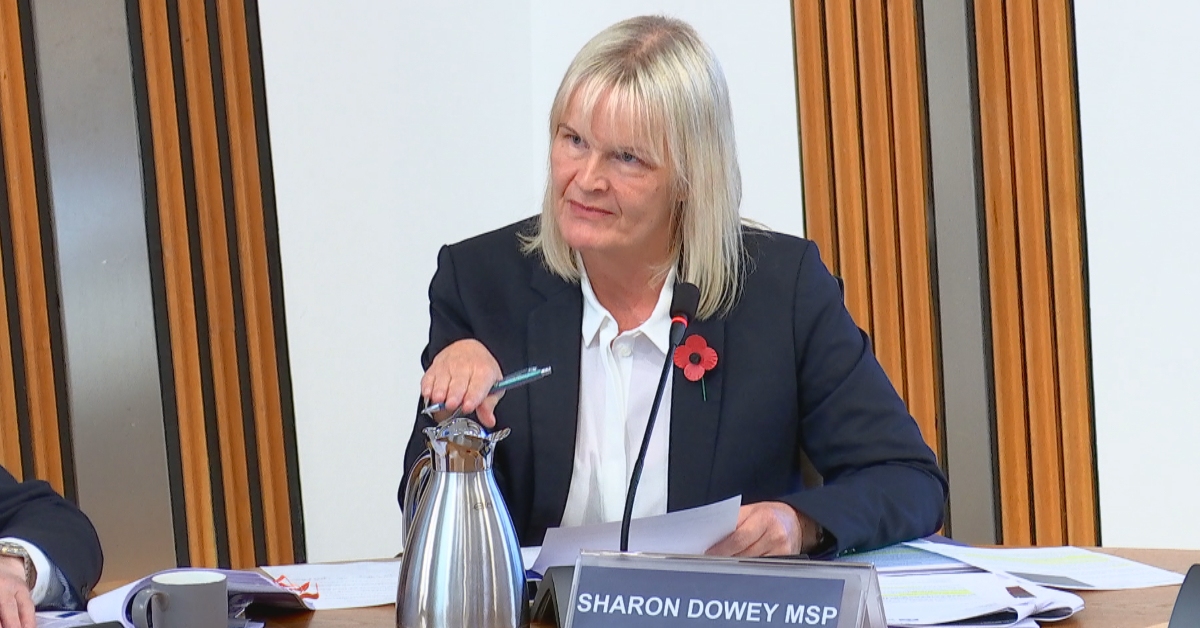 STV News
STV NewsThe First Minister was also asked by the committee about whether she would have handled the awarding of the contract differently, had she known at the time of the concerns that later emerged.
“I will always look very, very critically with hindsight at the process of decision making and try to learn from it, not just from this, but from everything,” she told MSPs.
Pressed on whether she would have taken the advice of CMAL and re-tendered, she said: “Believe me, I have agonised over that.
“If at the time, on October 8, 2015, if we had known probably a fraction of what we know now, then clearly, you would wish you’d taken a different decision.
“But we didn’t know that at the time. So all I can do is assess the information that we did have at the time and come to a view as to whether the minister took a reasonable decision or not.
“And I think based on what was before the minister, every decision is a balance of risk. The risk was clearly set out, but so too were the mitigations.
“And also the fact that taking another approach wouldn’t necessarily avoid all of these problems, I think based on what was known at the time, that was a reasonable decision.
“But, based on what we know now, of course I wish I could turn the clock back and take a different decision.”
Following the evidence session, committee convener Richard Leonard said MSPs look forward to receiving additional information from the First Minister.
“This morning’s evidence to the committee confirmed that there are still gaps in the information available to the public – information about the key decisions made which are pertinent to our scrutiny,” he said.
“The First Minister made a commitment to seek to provide this additional information and we look forward to receiving this in the hope that it will improve transparency and understanding.
“The committee will then take time to reflect on all the evidence received before reporting on our conclusions over the coming months.”
Follow STV News on WhatsApp
Scan the QR code on your mobile device for all the latest news from around the country


